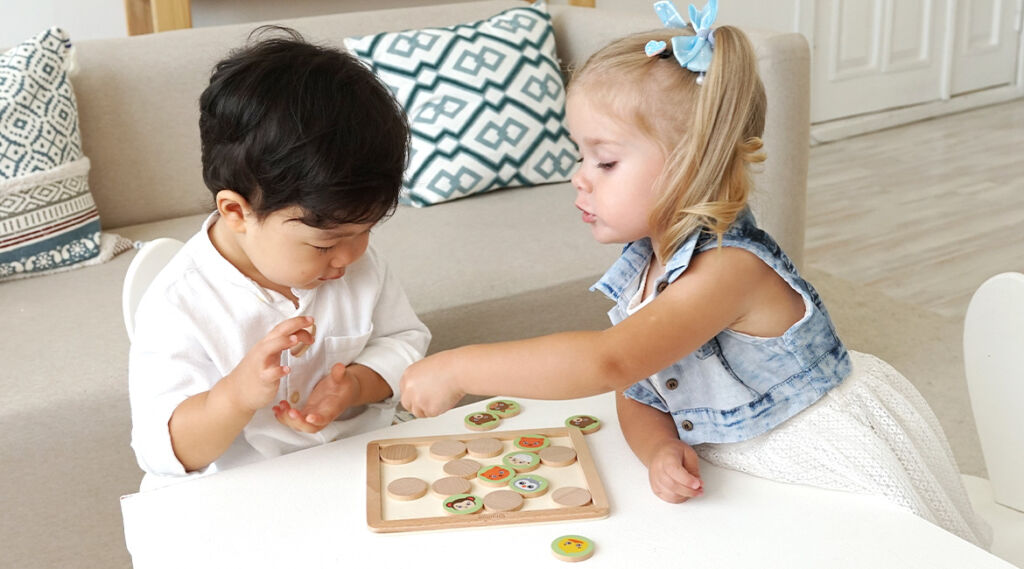The early years of a child’s life lay the foundation for their future growth and development. During this critical period, nurturing a child’s brain development becomes a top priority for parents and caregivers. Understanding the significance of brain development in early childhood, we explore three key ways to stimulate and support this vital process. At Bimi Boo, we offer educational apps, cartoons, and toys to support your child’s development. From newborns to toddlers, every stage offers unique opportunities for promoting healthy brain development.
Engage in Meaningful Interactions
From the moment a newborn enters the world, their brain is primed to absorb information and make connections. Interacting with your baby through talking, singing, and gentle touch creates a nurturing environment that stimulates brain development. Engage in meaningful conversations, even if they can’t yet respond. Narrate daily activities, describe objects, and explore the world together. These interactions help develop language skills, build neural connections, and foster emotional bonding, nurturing a growing brain.
As your child grows into a toddler, play becomes a crucial tool for brain development. Engage in age-appropriate activities that encourage exploration, problem-solving, and creativity. Simple games, puzzles, and building blocks provide opportunities for cognitive growth, fine motor skill development, and spatial awareness. The power of play in fostering brain connections cannot be underestimated.
Provide Enriching Environments
Creating a stimulating environment rich in sensory experiences is essential for optimal brain development. From birth, babies respond to visual, auditory, and tactile stimuli. Incorporate age-appropriate toys, books, and music that capture their attention and ignite their curiosity. Colorful mobiles, musical instruments, and textured toys engage their senses and promote cognitive and motor development.
Expose your child to a variety of experiences and environments. Take them on nature walks, visit museums, or explore the local community. Novel experiences trigger brain activity and help develop cognitive flexibility, problem-solving skills, and adaptability. Remember, even everyday activities like cooking, gardening, or reading together offer opportunities for learning and brain development.
Prioritize Healthy Nutrition and Sleep
Proper nutrition and sufficient sleep are fundamental pillars for supporting healthy brain development in early childhood. Nutrient-rich foods, especially those high in omega-3 fatty acids, promote brain growth and function. Incorporate a variety of fruits, vegetables, whole grains, and lean proteins into your child’s diet. Consult with a pediatrician to ensure their nutritional needs are met.
Adequate sleep is crucial for consolidating learning and facilitating brain development. Establish a consistent sleep routine, creating a peaceful and conducive sleep environment. Set age-appropriate bedtimes and ensure your child receives the recommended amount of sleep for their age group.
In conclusion, understanding the importance of brain development in early childhood empowers parents and caregivers to provide the best support for their child’s growth. By engaging in meaningful interactions, creating enriching environments, and prioritizing healthy nutrition and sleep, we pave the way for optimal brain development and set the stage for a bright and promising future.
Remember, every moment counts in shaping young minds. Embrace the journey, celebrate milestones, and watch in awe as your child’s potential unfolds.




